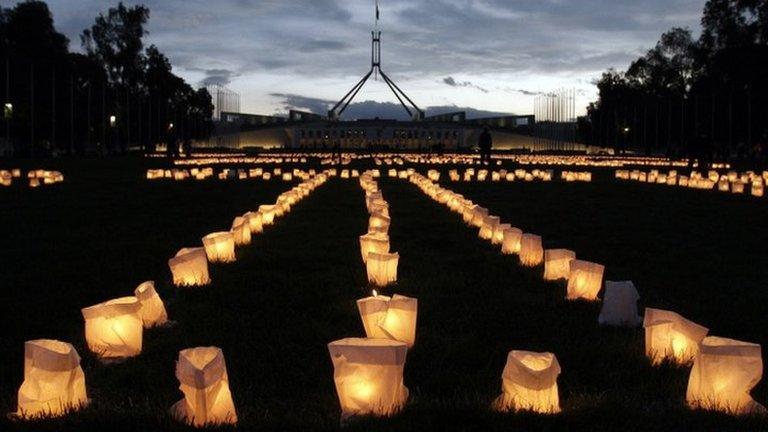Australian PM criticised for remarks on remote communities
- Published
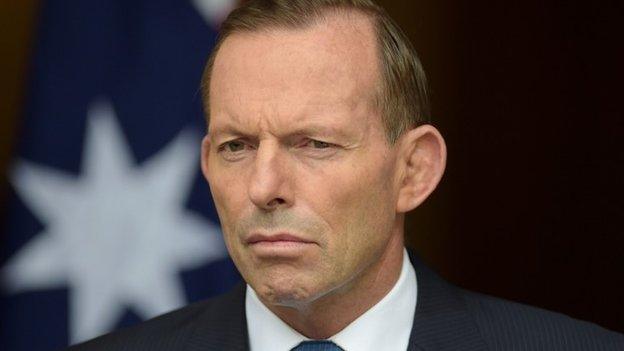
Tony Abbott has said he supports a plan to close up to 150 remote communities in Western Australia
Australian Prime Minister Tony Abbott has been criticised for suggesting that people living in indigenous communities are making a "lifestyle choice".
Visiting Western Australia, Mr Abbott said the government could not "endlessly subsidise" those that chose not to fit in with wider society.
He has previously said he supports the planned closure of up to 150 remote communities in Western Australia.
Critics have called the remarks "offensive" and "inappropriate".
It was announced in September that the federal government would transfer responsibility for funding Indigenous Australian communities to individual states.

Australia's remote Indigenous communities
• There are about 250 indigenous communities in Western Australia, home to about 15,000 people. Some have as few as five people, others have as many as 500.
• Most are in the Kimberley region in the far north of Western Australia - the government there plans to close as many as 150 of the smallest communities, saying they are not financially viable.
• Many are powered by diesel generators, rely on bore water and have no paved roads. The bigger communities have a general store, a school and sometimes a health clinic.
• Some of the communities are on ancestral lands, others are on the sites of old welfare missions.

Speaking to ABC Radio on a visit to Kalgoorlie on Tuesday, Mr Abbott said that Western Australia Premier Colin Barnett was right to close nearly half the state's 274 remote communities if the cost of providing services to them outweighed the benefits.
"What we can't do is endlessly subsidise lifestyle choices if those lifestyle choices are not conducive to the kind of full participation in Australian society that everyone should have," Mr Abbott said.
"Fine, by all means live in a remote location, but there's a limit to what you can expect the state to do for you if you want to live there."
'Disgrace'
The chair of the government's Indigenous Advisory Council, Warren Mundine, told the BBC that Mr Abbott's comments had angered indigenous communities and diverted attention away from a serious discussion about reforms in Aboriginal and Torres Strait Islander areas.
"I'm a bit nervous about the word 'close'; when you say that to Aboriginal people in Australia, the hair stands up on the back of their necks because it has an historical premise, because we were forced off our land in 1930s and 1940s," he said.
"People are living in these communities not because of lifestyle choices but because of very strong cultural and religious reasons. People have got to understand that for indigenous people in Australia, their country is the essence of their being."
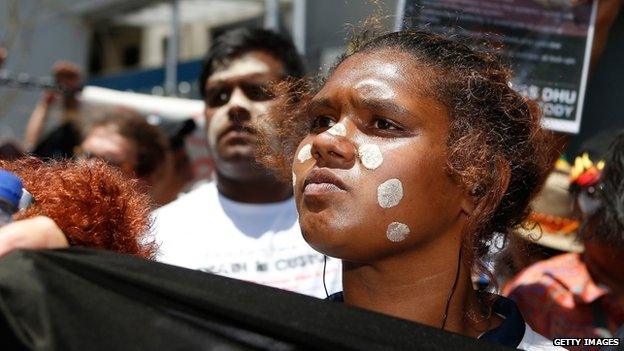
Indigenous Australians represent about 2.5% of Australia's 24 million people
Mick Gooda, the social justice commissioner for Aboriginal and Torres Strait Islander (ATSI) communities, said it was "a poor choice of words".
He told Australia's ABC that indigenous people understood there were problems with funding remote communities but wanted to be consulted on how to solve the problem.
Labor's Indigenous Affairs spokesman Shayne Neumann called the comments a "disgrace".
"Here he is saying that Aboriginal and Torres Strait Islander people should be evicted from the lands on which they've lived for millennia," he told ABC.
"He really is a disgrace and he really should apologise unreservedly for these comments," he added.
'Very real question'
Mr Abbott defended his remarks in a press conference on Wednesday, telling reporters there were "limits to what we can reasonably expect of the taxpayer".
"I'm very comfortable with my credentials when it comes to doing the right thing by the Aboriginal people of Australia," he said, and referred to his commitment to spending one week every year governing from a remote community.
Cabinet ministers Malcolm Turnbull and Joe Hockey defended the prime minister's remarks.
Mr Turnbull, the minister for communications touted as a leadership rival to Mr Abbott, said the prime minister had "a very good understanding" of Indigenous Australia and had been the victim of a "let's-give-Tony-Abbott-a-belting occasion".
Australia's constitution does not recognise Aboriginal and Torres Strait Islanders as the nation's first people.
In recent years there have been discussions about changing the constitution to recognise indigenous people and outlaw discrimination against them.
Mr Abbott said in December he would "sweat blood" to secure a referendum on the change.
Indigenous Australians represent about 2.5% of Australia's 24 million people. Generations of discrimination and disadvantage have left them with poor health and low levels of education and employment.
- Published12 December 2014
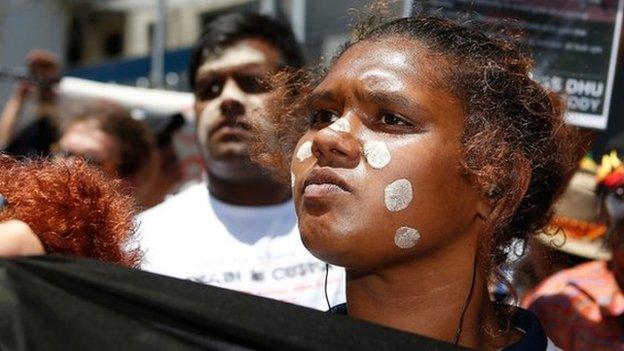
- Published12 December 2014
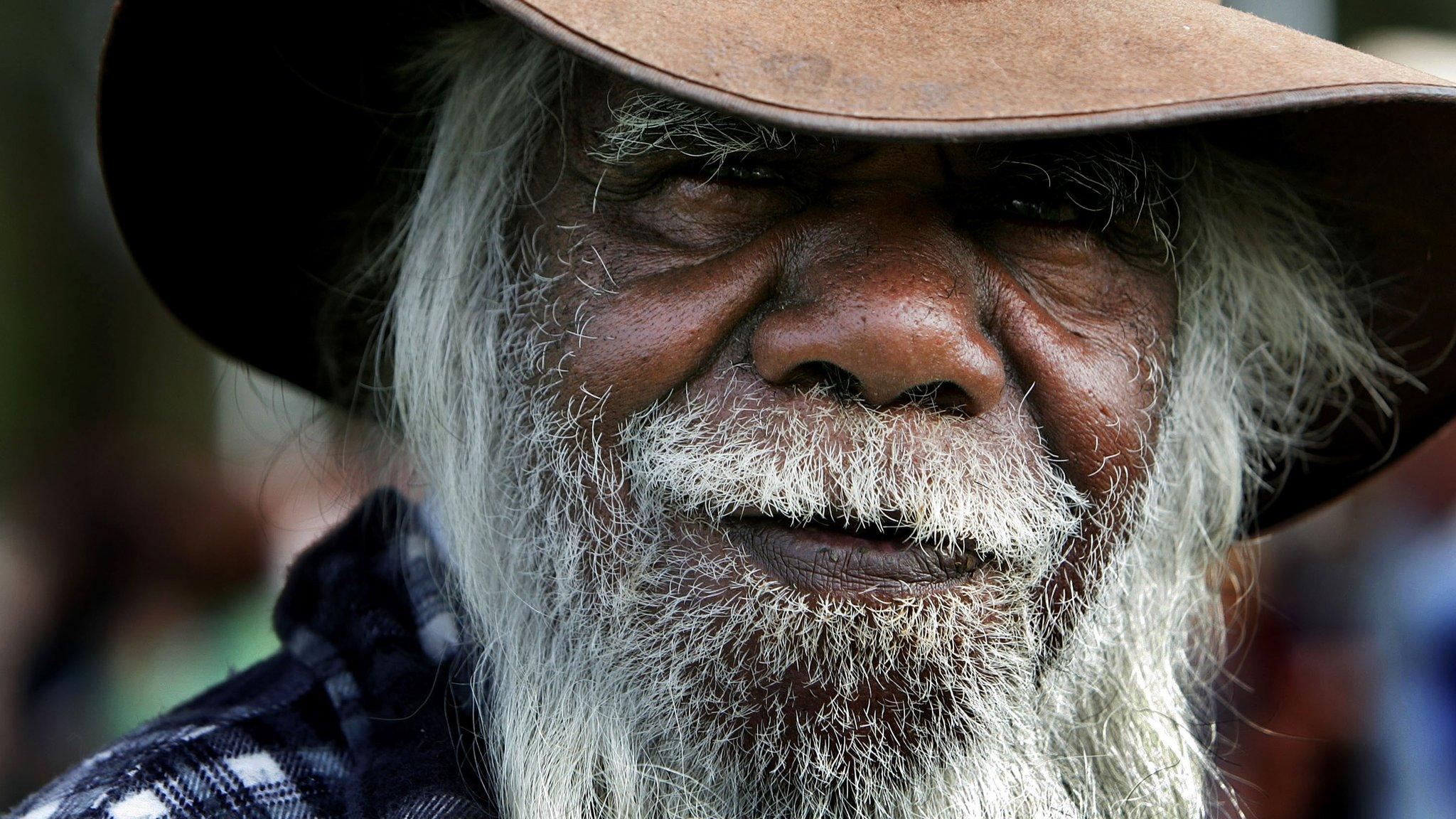
- Published2 December 2014
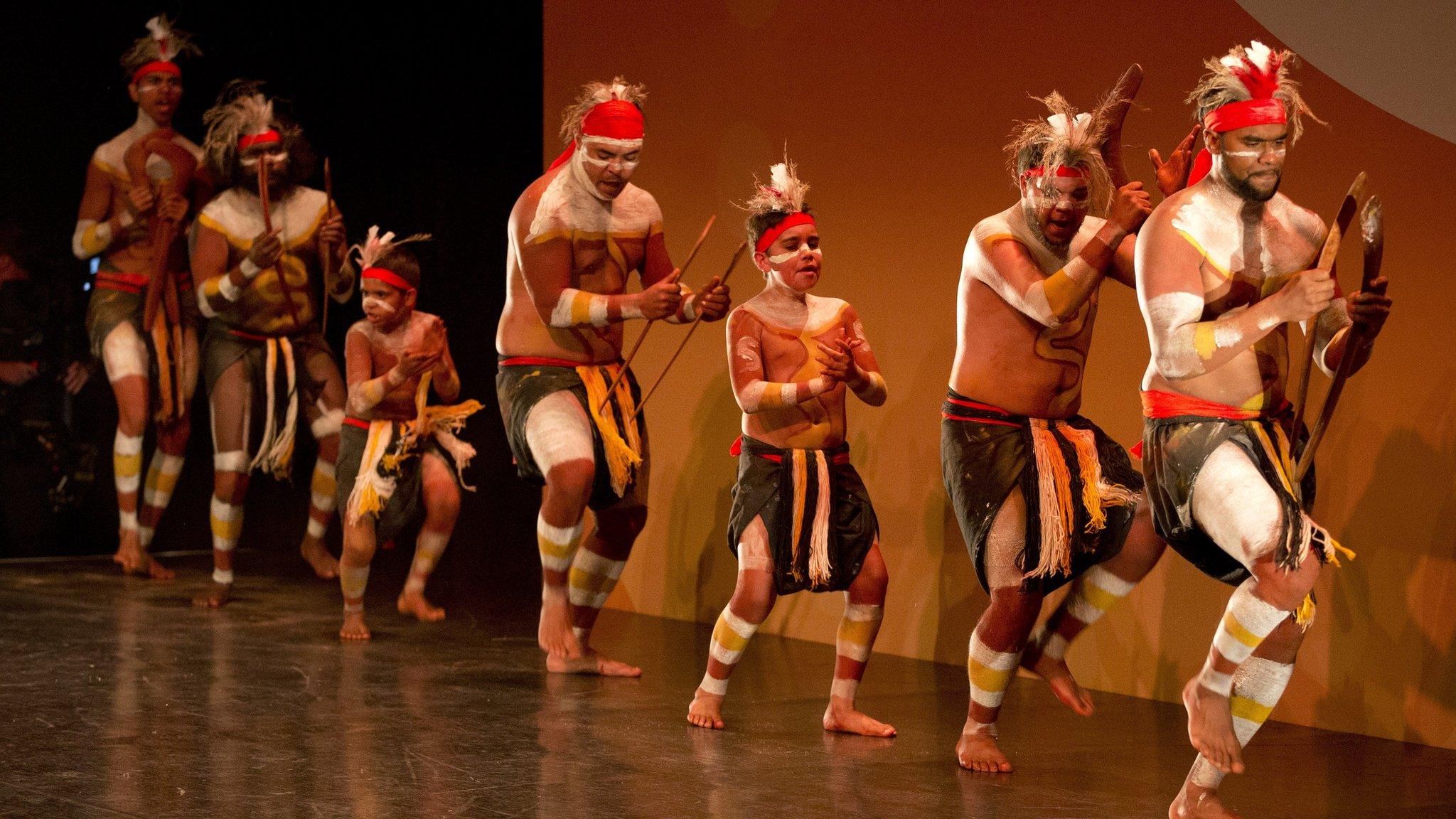
- Published15 September 2014
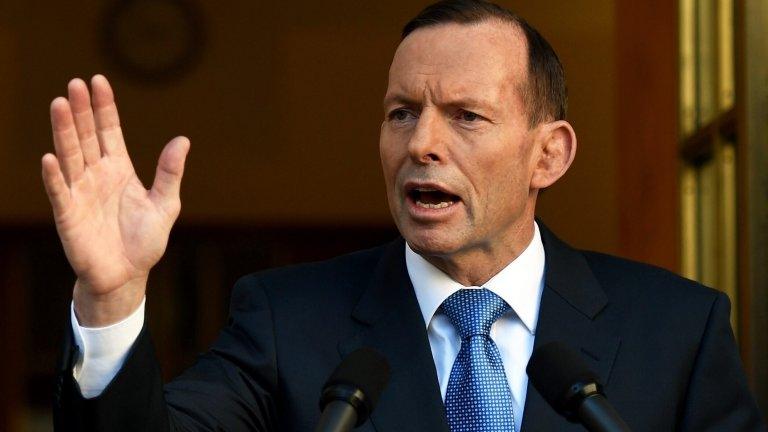
- Published15 September 2014
- Published13 February 2013
